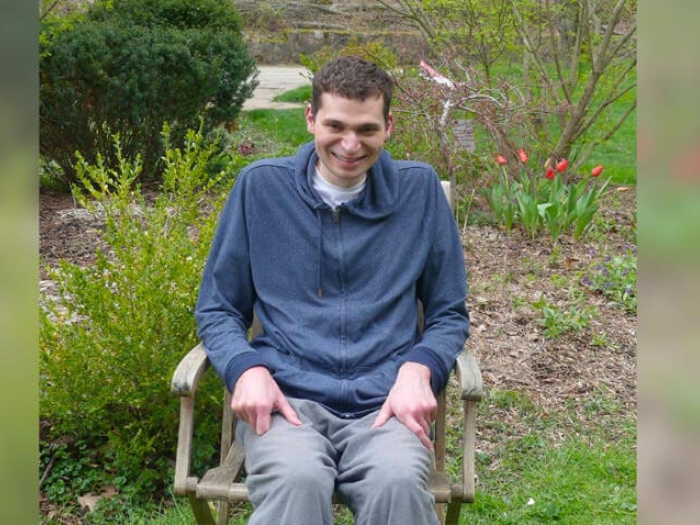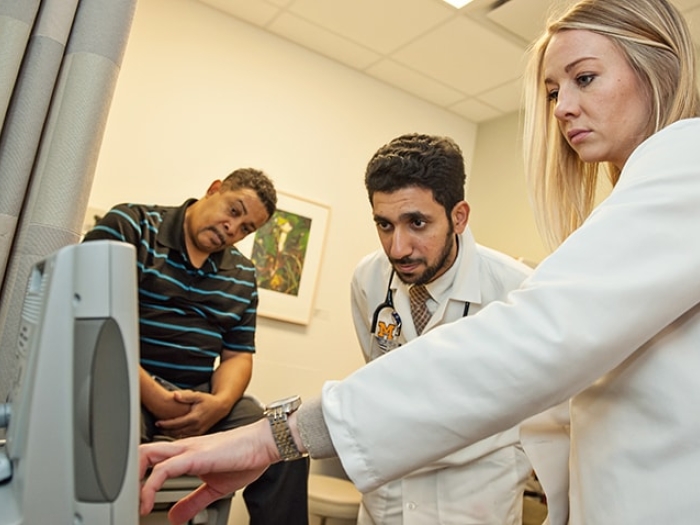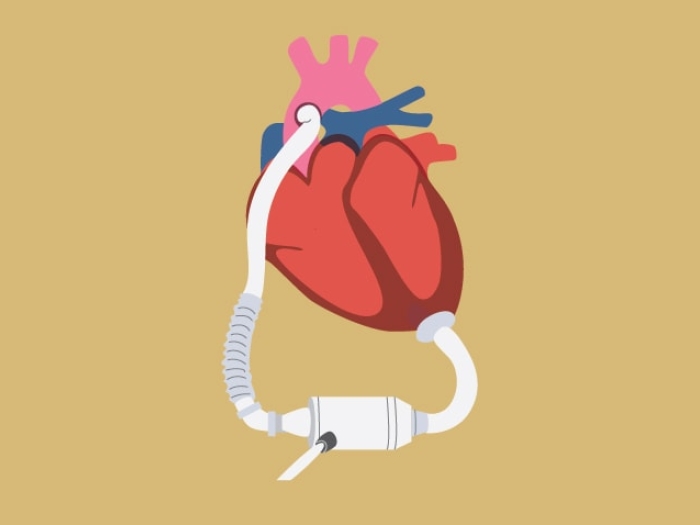Aortic stenosis can’t keep this six-time National Senior Games medal winner out of the water.
7:00 AM
Author |

Rita Gelman began her competitive swimming career at a time in life when most seniors are slowing down. She had her first competitive swim with the U.S. Masters Swimming program in 2005 at age 73 — proving age is nothing but a number.
MORE FROM MICHIGAN: Sign up for our weekly newsletter
Still, at one point, the now 85-year-old grandmother of 10 says her energy level wasn't what she thought it should be.
But she felt relatively healthy, until a chance meeting with Kim Eagle, M.D., at an informational breakfast made her wonder.
A lasting connection
Seated next to the University of Michigan Frankel Cardiovascular Center cardiologist, Gelman says she spoke with him about her biggest health concern: high blood pressure.
"You should come and see me," she recalls Eagle saying. That was 2003, and the beginning of a long-term doctor-patient relationship.
"At that time, Dr. Eagle put me on blood pressure and cholesterol medication," she says, noting that she saw him yearly for checkups before and after she started swimming.
In 2014, Gelman noticed she was becoming short of breath during regular activity. She attributed it to not swimming that summer and thought she was simply out of shape.
Her appointment with Eagle revealed a more serious reason: mild aortic valve stenosis and cardiac hypertrophy, or thickening of the heart.
In Gelman's case, it was behind her lagging energy levels. Addressing the condition has helped her take on the competition with renewed vigor — swimming her way to the National Senior Games.
About aortic stenosis
Aortic stenosis is a condition in which the aortic valve fails to fully open and close because of a thickening of the valve leaflets. The result is a decrease in blood flow from the heart to the body. The condition can cause the heart to work harder to pump blood.
Symptoms may include:
-
Chest discomfort or tightness
-
Shortness of breath
-
Lightheadedness
-
Dizziness
-
Fainting
Depending on the severity, aortic stenosis can be treated medically or surgically. Surgical treatment may consist of repairing the valve leaflets or replacing the valve and can be done via an open or minimally invasive procedure.
Getting the go-ahead
Eagle's recommendation was to monitor Gelman's condition, allowing her to continue to swim, provided she took preventive measures that included medication for high blood pressure and cholesterol.
SEE ALSO: Is It Aortic Stenosis or Old Age? Symptoms to Know
"Rita's aortic valve disease does require close follow-up and monitoring," says Eagle. "But like so many patients with carefully assessed mild and stable heart disease, she can live her life with vigor."
In recent years, Gelman has become even more competitive, joining a USMS group in Milford, Michigan, north of her home in Ann Arbor. Her coach, Kris Goodrich, a graduate of the U-M School of Kinesiology, developed a training plan for her that includes the use of a heart rate monitor during swims.
This year, Gelman swam in the National Senior Games in Birmingham, Alabama, for the first time. She took home two gold and four silver medals in her age group.
Living life fully
Eagle sees Gelman as a "great example of living life fully with heart disease." And with her last echocardiogram looking good, he says she doesn't currently require surgery for her aortic stenosis.
Today, Gelman can be found in the fast lane twice a week during training sessions. And she's not ready to get out of the pool anytime soon.
"You have to show up and participate," she says, adding: "There's still a lot of competition out there."

Explore a variety of healthcare news & stories by visiting the Health Lab home page for more articles.

Department of Communication at Michigan Medicine
Want top health & research news weekly? Sign up for Health Lab’s newsletters today!





